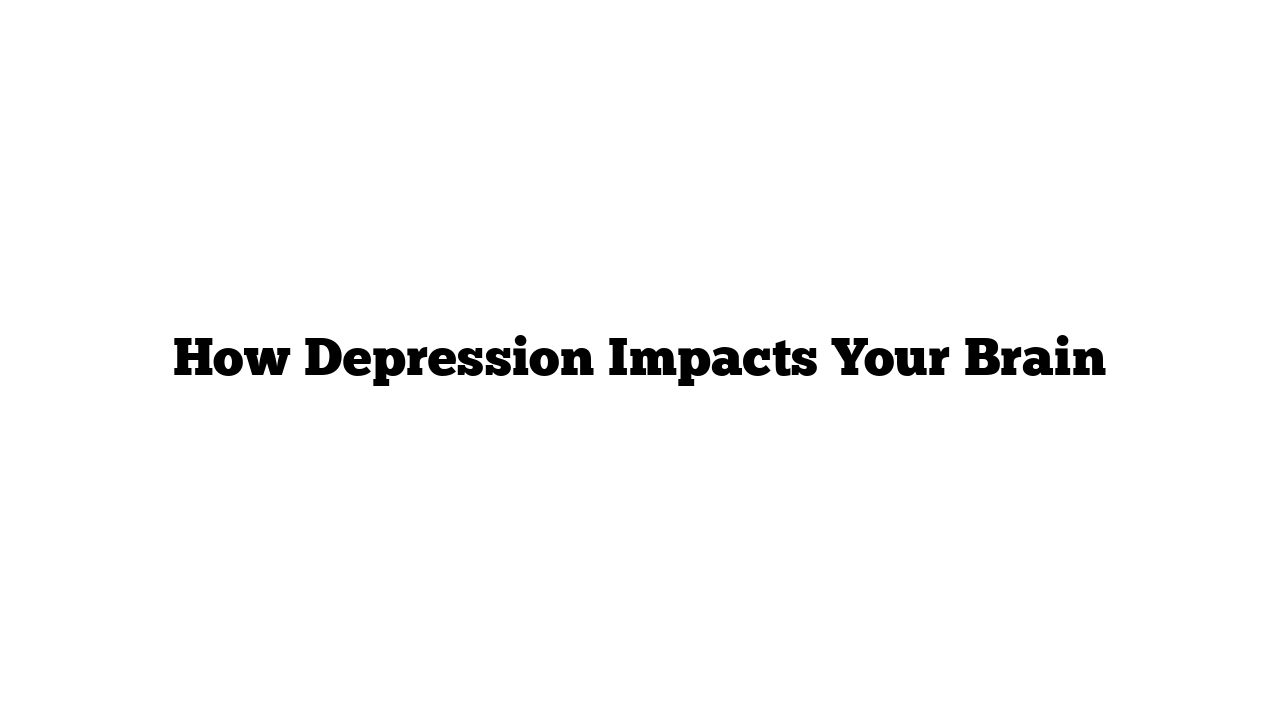Depression is a complex mental health condition that affects millions of people worldwide. Understanding how depression affects the brain is crucial in developing effective treatments. Let’s explore the mechanisms behind this mental health issue and how we can approach it.
The Monoamine Deficiency Hypothesis
Traditionally, the standard treatment for depression has been based on what is known as the monoamine deficiency hypothesis. This theory suggests that depression is caused by a deficiency in one of three key neurotransmitters: serotonin, norepinephrine, or dopamine.
Neurotransmitters are the brain’s chemical messengers, facilitating communication between neurons. Although it’s important to recognize these neurotransmitters, this model is limited. In reality, there are over a hundred neurotransmitters, resulting in billions of connections within the brain.
Moving Beyond Traditional Models
For decades, researchers believed that abnormalities in serotonin and norepinephrine were the primary culprits of depression. However, studies have shown that these neurotransmitters alone cannot explain the full range of symptoms experienced by individuals with major depression.
Recent findings indicate that glutamate and GABA—two of the brain’s most abundant neurotransmitters—may also play a significant role in regulating mood and emotion. These chemicals are vital for how the brain adapts and changes over time.
The Effects of Chronic Stress
When someone experiences severe and chronic stress, which is often the case with depression, the brain undergoes significant changes. The connections between neurons can weaken, leading to inefficient and “noisy” communication within the circuits that regulate mood.
This breakdown in communication is believed to contribute to the biological underpinnings of depression. Recognizing these changes is critical, as it can help us understand how the disease develops and progresses.
The Importance of Understanding Neurobiology
Understanding the neurobiology of depression is essential for two primary reasons:
- Treatment Development: By knowing how depression affects the brain, we can target treatments more effectively.
- Brain Health: There are noticeable differences between a healthy brain and a depressed brain. The exciting part is that effective treatment can help the brain return to a healthier state.
Long-Term Treatment and New Approaches
Treating depression is often a long-term process, as it can be a chronic disorder for many individuals. This has led to a growing need for innovative treatment methods, especially for those who haven’t found relief from traditional options.
We are entering a new era in psychiatry. This shift moves away from a narrow focus on monoamine deficiencies towards a comprehensive understanding of the brain as a complex neurochemical organ.
Final Thoughts
By deepening our understanding of how depression affects the brain, we can better support individuals struggling with this condition. Treatments that target the brain’s intricate networks hold promise for those in need of effective solutions.
To learn more about mental health, please visit medicaltimes.io.
References
- Yale Medicine. “The Neurobiology of Depression.”
- National Institute of Mental Health. “Understanding Depression.”
